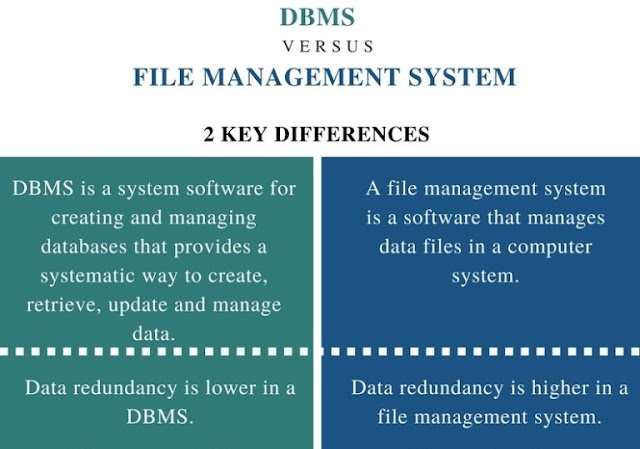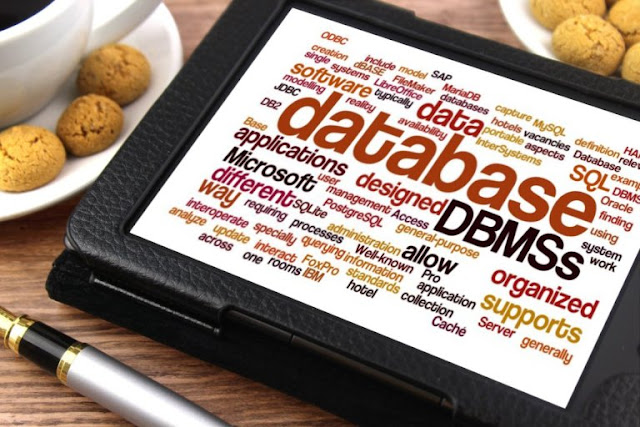The key difference between DBMS and File Management System is that a DBMS stores data to the hard disk according to a structure while a file management system stores data to the hard disk without using a structure.
Read More: 1Z0-497: Oracle Database 12c Essentials
DBMS is a system software for creating and managing databases in an organized way while a file management system is a software that manages data files in a computer system.
What is DBMS?
DBMS stands for Database Management System and it helps to create and manage databases, which are collections of data. Furthermore, DBMS stores data in tables. Here, first, the user should create the structure to store the data. Then the data storage takes place according to that structure.
One major advantage of DBMS because of this structure is that it provides querying. It is easy to access, search, update and delete data using queries. Structured Query Language (SQL) is the language to write queries for DBMS. The DBMS maintains a single repository of data and many users access this single repository. It also maintains data integrity by using constraints. Further, it reduces the data redundancy and increases data consistency.
The DBMS supports multi-user environment. Therefore, many users can access the data at the same time. It is also possible to make one data available to one department not available for another. Overall, a DBMS is suitable for a large organization to manage many records.
What is File Management System?
A file management system handles how to read and write data to the hard disk. When installing the operating system, the file system also installs to the computer. For examples, OS such as Linux and Windows provide files systems. It stores data to the hard disk and storing and retrieving data occurs through this file management system.
In a file system, each user implements files according to the requirement. For example, in a sales department, one employee might store the details of sales personnel’s, and another employee might store details of the salaries. The same data might be replicated. So, there can be a data redundancy. When updating data, the user has to check all the places that data exists. Forgetting to change the updates can cause data inconsistency. Sometimes, it is necessary to store data according to conditions. Applying constraints is also hard with a file management system. A file management system is more suitable for a small organization to deal with the small number of clients.
What is the Difference Between DBMS and File Management System?
| DBMS vs File Management System | |
| DBMS is a system software for creating and managing databases that provides a systematic way to create, retrieve, update and manage data. | A file management system is a software that manages data files in a computer system. |
| Data Redundancy | |
| Data redundancy is low in a DBMS. | In a file management system, data redundancy is high. |
| Consistency | |
| In DBMS, the data consistency is high. | Data consistency is low in the file management system. |
| Data Sharing | |
| Sharing data is easier in DBMS. | Sharing data is harder in file management system. |
| Integrity | |
| Data integrity is high in DBMS. | In file management system, the data integrity is low. |
| Operations | |
| Updating, searching, retrieving data is easier in DBMS because of queries. | Updating, searching, retrieving data is harder in a file management system. |
| Security | |
| In DBMS, the data is more secure. | Data is not very secure in file management system. |
| Backup and Recovery Process | |
| Backup and recovery process is complex in a DBMS. | Backup and recovery process is simple in a file system. |
| Number of Users | |
| DBMS is suitable for large organizations to support multiple users. | File management system is suitable for small organizations or single users. |
Source: differencebetween.com





0 comments:
Post a Comment